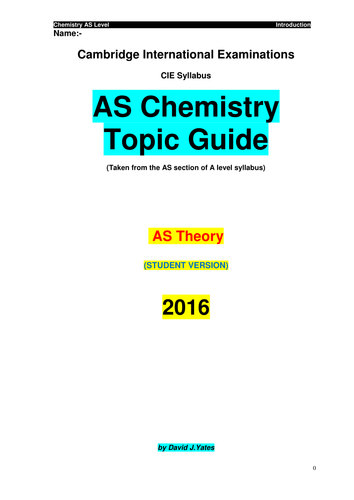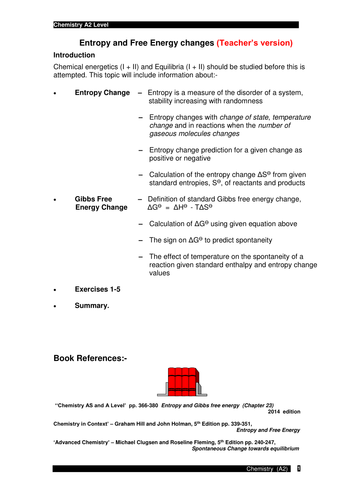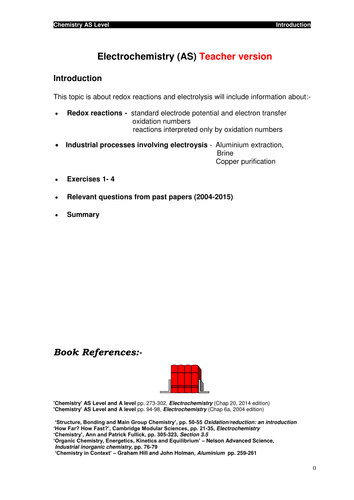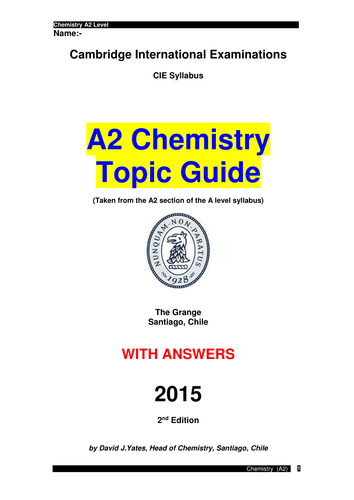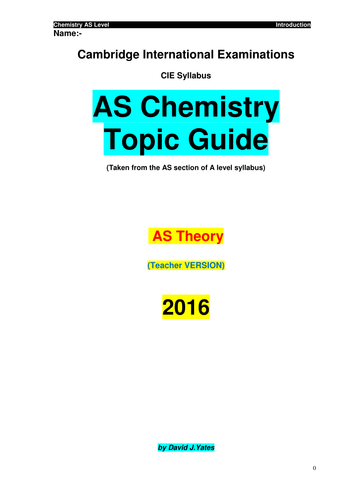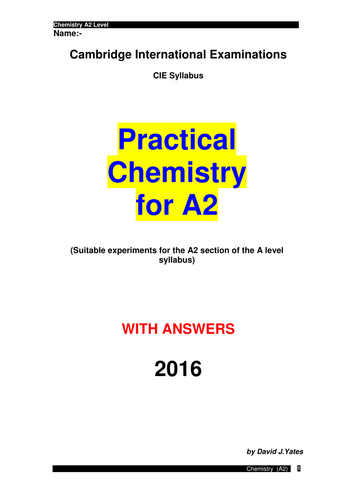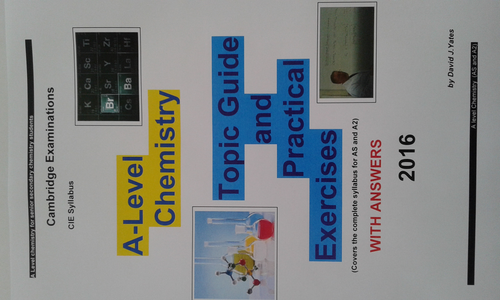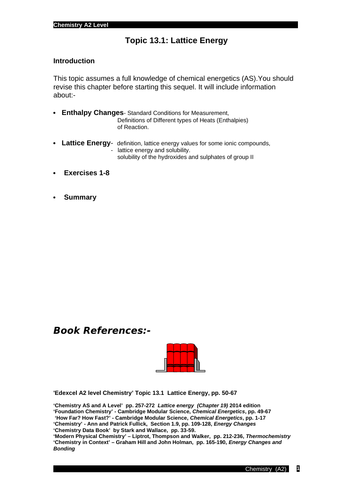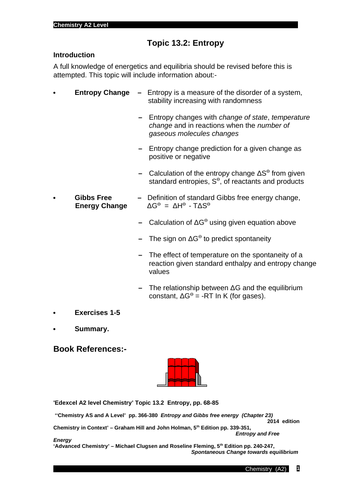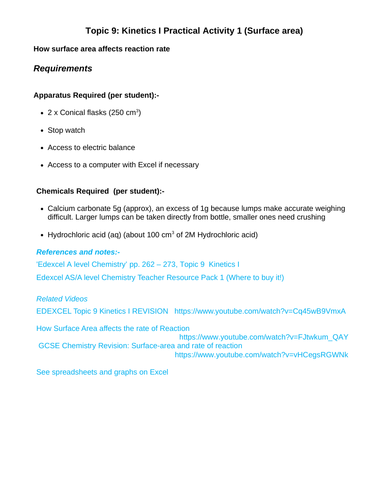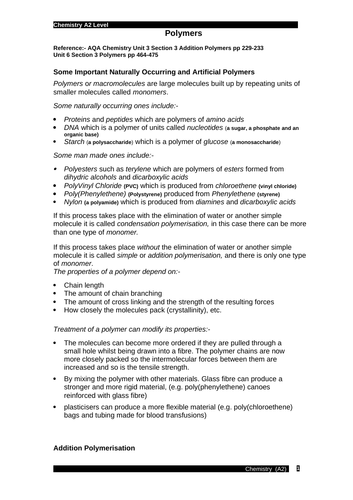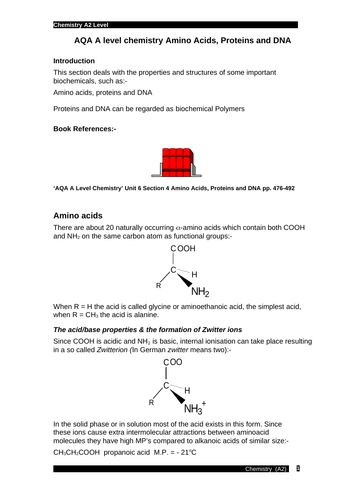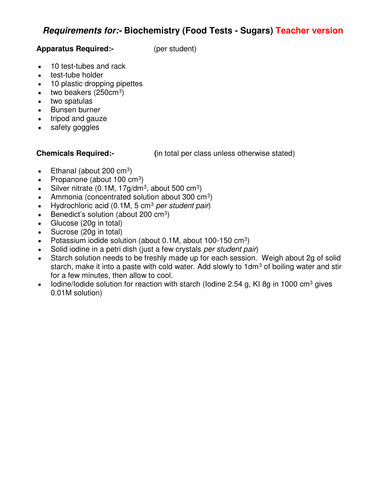djycm123's Shop
Having started in a comprehensive school in London in the 1970's I have taught in many different parts of the world, Africa, Middle East, China and South America. Many of those jobs required the development of teaching resources . This material is mostly in Word format, suitable for students taking chemistry aged from 12-18 (i.e. pre-IGCSE, IGCSE, AS and A2) and is geared towards Cambridge International Examinations (CIE). Recently added material is geared towards the Edexcel syllabus a


